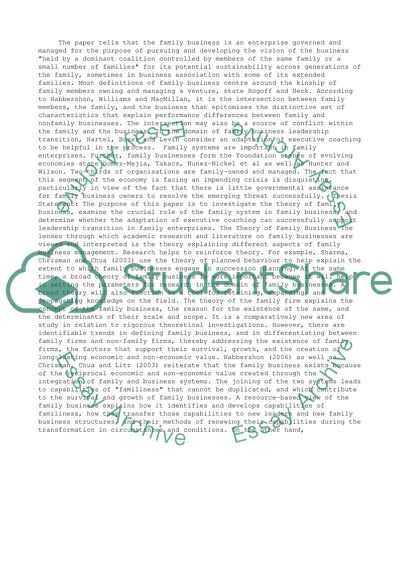Cite this document
(“Family Business Essay Example | Topics and Well Written Essays - 2000 words”, n.d.)
Retrieved from https://studentshare.org/business/1395605-literature-review
Retrieved from https://studentshare.org/business/1395605-literature-review
(Family Business Essay Example | Topics and Well Written Essays - 2000 Words)
https://studentshare.org/business/1395605-literature-review.
https://studentshare.org/business/1395605-literature-review.
“Family Business Essay Example | Topics and Well Written Essays - 2000 Words”, n.d. https://studentshare.org/business/1395605-literature-review.


